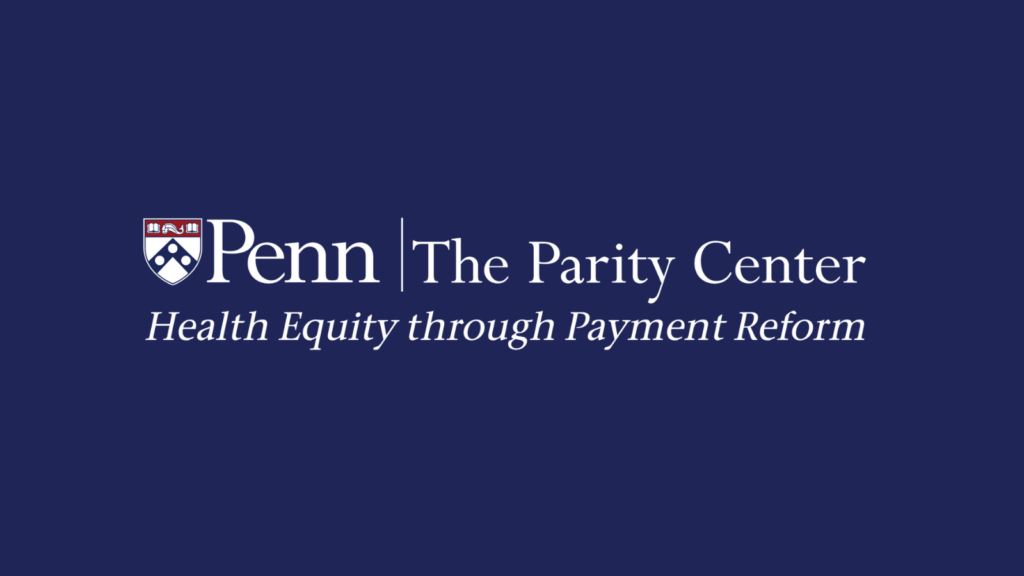What is the Parity Center? A Q&A with the Deputy Director

This past year, CHIBE Associate Director Dr. Amol Navathe launched The Parity Center, an interdisciplinary team of experts working to catalyze reform in health care payment in a way that promotes equitable health care delivery and outcomes. The team is based in the Perelman School of Medicine at the University of Pennsylvania, and they collaborate with health insurers, health systems, physician practices and policymakers.
CHIBE spoke with Dr. Austin S. Kilaru, Assistant Professor of Emergency Medicine and Deputy Director of The Parity Center, to learn more.
What are the objectives of the Parity Center?
Over the past two decades, there has been tremendous innovation in health care payment. Yet only recently has it become clear that we must focus that innovation not only on improving value but also advancing health equity. The Parity Center has 2 main objectives:
- We seek to investigate — and expose — the root causes of how payment policies create structural barriers to achieving health equity.
- We also seek to evaluate the impact of payment reform on health disparities and use those insights to inform evidence-based policy design. A priority for our Center is to foster collaboration — both within our phenomenal team of investigators but also externally, with leaders and policymakers in the public and private sectors.
What is your team currently working on?
We are working on so many important and timely problems, including the brilliant work led by Associate Directors Drs. Eric Roberts, Paula Chatterjee, Kristin Linn, and Ravi Parikh as well as our collaborators including Dr. Joshua Liao.
A few highlights: We have support from Arnold Ventures to define the health care safety-net in the United States, which will allow policymakers to target interventions that better support physicians, hospitals, and other providers who disproportionately care for historically marginalized populations. Another set of projects focuses on risk adjustment — to both identify instances of algorithm unfairness (which lead to biased allocation of resources) and also to imagine new methods or risk adjustment that incorporate health-related social needs in addition to clinical factors. A final example is our ongoing work on episode-based payment models or bundled payments. We have been national leaders in evaluating these programs and recently hosted a webinar to discuss their future. More recently, this work has shifted to understanding the equity impacts of these models, including their potential to reduce or worsen disparities.
What do you see as the most pressing problems in payment, and how do you hope to make an impact?
We believe that policies must be designed — or changed — using evidence that informs their impact on historically marginalized populations. There is real and meaningful momentum to improve the health care system using payment as the lever for change, ranging from new approaches to primary care reimbursement, Medicaid policy redesign, support for hospitals vulnerable to closure, and interventions to address health-related social needs. Yet, all these efforts need to be guided by data to be effective and also to avoid unintended consequences for the problems they hope to solve. We can make an impact by conducting rigorous research into these problems and bringing our findings directly to the leaders who are working on them.
What are some barriers to change in this area?
These problems are big problems, and therefore hard to change. And when new policies are proposed, they can advance quickly and without time for careful empirical work before they are implemented. That is why we hope to do foundational work that can be available to policymakers and health system leaders when they need it. But this is also why we hope to anticipate new problems, policies, and trends and start doing the work now, both to advocate for needed changes and also to guide how the changes should be made.
What else do you want people to know about the Parity Center?
We are truly grateful for support and collaboration with CHIBE as our new Center launches! We aspire to have the same scientific impact but also same tradition of education and mentorship as we continue to grow.